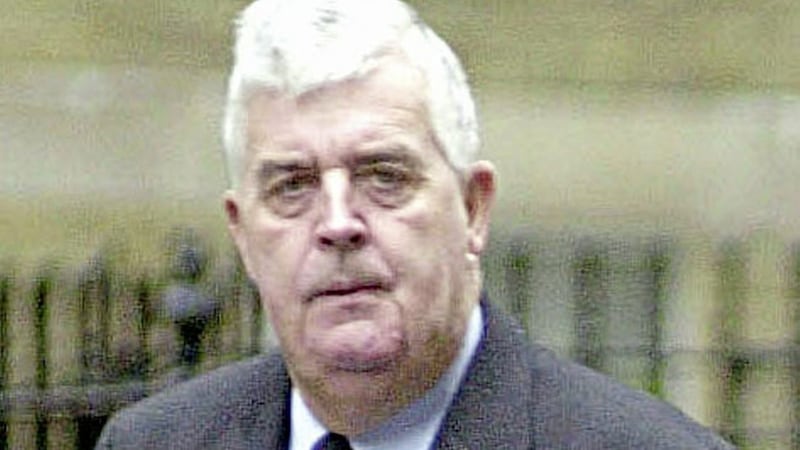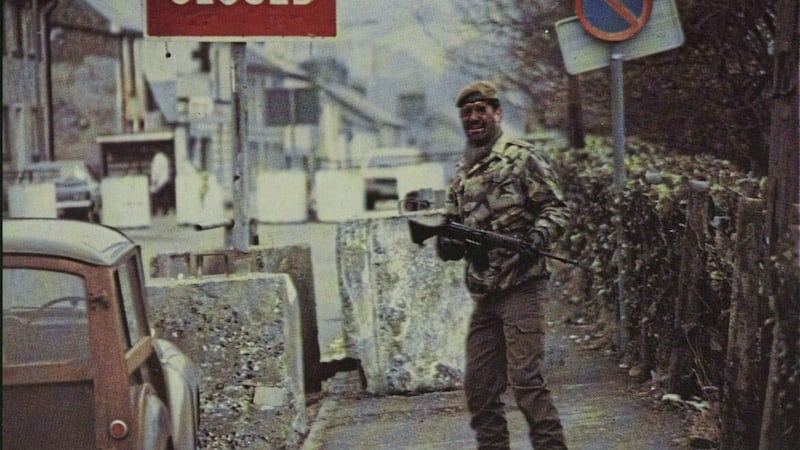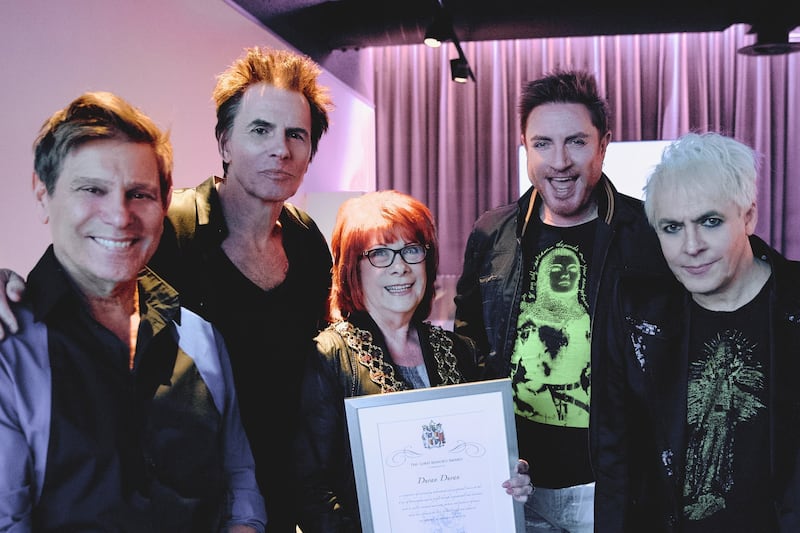JOHN Taylor will be 80 on Christmas Eve. He nearly didn't make it.
He almost drowned when he was a boy: "One Sunday, when I was about 12, I started to sink when I was swimming across the harbour in Rossnowlagh. People were screaming! As I was nearing the third sinking (he) dived in and pulled me out and saved my life. Much appreciated!!!"
The 'he' was Sam Kane, a close friend of Taylor's parents. About 15 years later Sam and his wife adopted me from an orphanage.
In February 1972, in Armagh, his car was raked with bullets by two members of the Official IRA.
He was hit five times in the head and required extensive reconstructive surgery on his jaw. The son of one of the surgeons is a near neighbour of mine.
Taylor was first elected to the Northern Ireland Parliament in November 1965. He was appointed a Minister of State in the Ministry of Home Affairs in 1970 and is the last remaining member of the last NI cabinet.
He has been an MP, MEP, local councillor and a member of the 1973 Assembly, 1975 Convention, 1982 Assembly, 1996 Forum and 1998/2003 Assembly.
He was created a life peer in July 2001 - Baron Kilclooney - and sits as a crossbencher. He has extensive business interests and is part-owner of the Alpha Newspaper Group.
Taylor has always had a reputation as a maverick. Former UUP leader Jim Molyneaux once likened him to a corncrake: "You can always hear John coming from a long way off, but you can never be entirely sure in what field he will land."
In February 1969 he was one of a group of Stormont MPs who signed a statement saying that the party would only be united if Terence O'Neill was replaced as leader.
In January 1974 he tabled the anti-Sunningdale motion at an emergency meeting of the Ulster Unionist Council: the motion was carried and Brian Faulkner resigned as party leader.
He was one of the first unionists to warn of the dangers of a 'pan-nationalist front' and suggested that the Hume-Adams talks in 1993 were evidence of Sinn Féin and the SDLP working together to remove Northern Ireland from the United Kingdom.
In September 1995 he was the clear favourite to replace Molyneaux as UUP leader. He was the best known of the five candidates (the others were Martin Smyth, William Ross, Ken Maginnis and David Trimble) and was reckoned to be the only one capable of being a big enough political beast to take on Ian Paisley.
A number of delegates said that Taylor underperformed during the speeches and one party officer told me: "John was John and was good on his feet. But he made the mistake of assuming, from the outset, that he was winning. He didn't go the extra mile."
But Taylor took the defeat graciously and remained a key ally of Trimble's all the way through the Good Friday Agreement negotiations and afterwards, at the numerous emergency meetings of the Ulster Unionist Council.
His reputation as the party's 'weathercock' was well deserved, because he did have a good nose for how the grassroots were thinking (his '40-foot bargepole' comment was directed at them rather than the governments).
As far back as early 1969 he knew when the party was unsettled. Had he, at any point, abandoned Trimble before the GFA was signed, I'm not sure that Trimble could have delivered either the party's executive or council.
I also think that Taylor was aware of the risks involved for the UUP and knew that the electoral damage could be enormous if the 'constructive ambiguity' approach didn't work in Trimble's favour.
He's clearly an easy target for republican critics, but they should bear in mind that he was instrumental in delivering the GFA.
But even as he reaches 80, Taylor's ability for gaffes (some people believe he is simply rude and insensitive, while others believe he 'enjoys a bit of mischief making') doesn't seem to have deserted him.
He described Leo Varadkar as 'the Indian', claiming that he didn't know how to spell his name.
He has had numerous run-ins with people on his Twitter account.
He has referred to Donegal as 'really the hinterland of Northern Ireland and it would be great to have it back with us'.
He is pro-Brexit, arguing that 'Northern Ireland will not be damaged in any way by Brexit, but the Republic is going to be crucified'.
And in a recent interview with The Irish News's John Manley he said: 'What I'm saying is that all people, nationalists in particular, must have equal opportunities with everyone else, but when it comes to equality, the word used by Sinn Féin, they are a political minority in NI'.
Taylor remains what he has always been: mercurial, mischievous, canny, genuinely interesting and occasionally self-serving; but ultimately, a pragmatic politician. Always waving. Not drowning.








